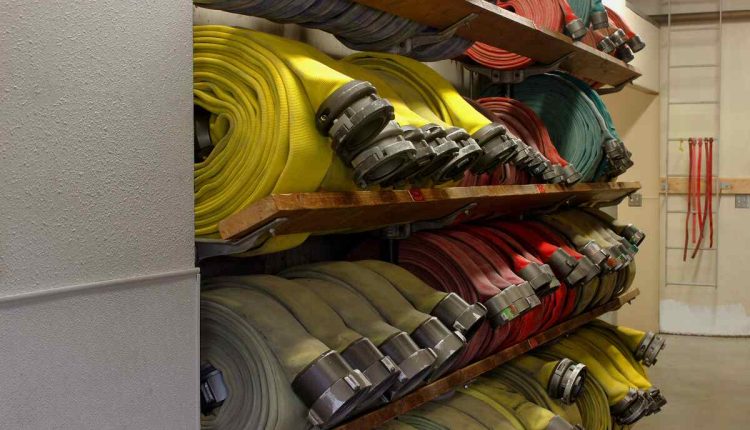What is Teflon?
Teflon has long been associated with nonstick cookware coatings, yet its name also serves as a trademark for polytetrafluoroethylene (PTFE) chemical compounds discovered by Roy Plunkett while researching gases related to refrigerants back in 1938. Have the Best information about PFA tube shop.
The material has proven to be resistant to heat, water, and chemical attack and is a low-friction material.
It is a non-stick material.
Teflon is the brand name for polytetrafluoroethylene (PTFE). PTFE can be found in applications ranging from nonstick cookware to coating light bulbs and is highly heat-resistant, perfect for high-temperature environments. PTFE’s durability has made it popular as a nonstick material in cookware applications as well. It also exhibits corrosion resistance against various chemical agents while being heat resistant – qualities that make Teflon an invaluable commodity!
However, it should be remembered that PTFE is nonbiodegradable and accumulates in the environment over time. Furthermore, when heated, it releases toxic fumes, which can be inhaled and cause various health problems, including skin and lung irritation, headaches, nausea, or even cancer.
Manufacturers have offered alternatives to Teflon as possible replacement coatings, including anodized aluminum, silicon, and enameled cast iron coatings. Unfortunately, however, fewer data are available about these alternative materials than for Teflon itself, while some may contain perfluorooctanoic acid (PFOA), which has been linked to thyroid disease and cancer.
Teflon has been free of PFOA since 2013, yet it still contains unknown and harmful chemicals known as PFAS, which have been linked with various health conditions, including liver and kidney disease. Despite these concerns, the Environmental Protection Agency and eight companies manufacturing PFAS have agreed to phase them out by 2020.
It is a heat-resistant material.
Teflon is an adaptable heat and corrosion-resistant material with many uses. It boasts a very high melting point, low auto-ignition temperature, and resistance to chemical attacks such as solvents or abrasions; in addition, it can withstand oxidation. Furthermore, its non-stick properties make it popular as a cookware coating material; industrial/commercial uses also utilize this versatile material, which has resistance against chemical abrasions and is easy to cut into custom shapes.
Roy Plunkett accidentally discovered PTFE while working with refrigerants in 1938, when working with gases related to refrigeration. While testing his sample of tetrafluoroethylene, he noticed it had polymerized into an opaque white waxy layer. Since its discovery, this material has revolutionized many fields, ranging from chemistry and engineering to technology. With its unique properties, PTFE remains one of the most valuable and versatile technologies ever devised.
PTFE, short for polytetrafluoroethylene, is a synthetic fluoropolymer made up of four fluorinated elements and produced by Kinetic Chemicals, now part of Chemours. Kinetic Chemicals trademarked its name “Teflon” in 1945 for this thermoset polymer; unlike most plastics, it remains stable under elevated temperatures even with oils or oxidizers present; moreover, it offers superior microbiological growth protection as it’s resistant to enzyme attack as well as UV light exposure compared to plastics!
PTFE boasts superior thermal and mechanical properties and can withstand temperatures up to 500degF without degrading. Furthermore, its chemical resistance includes prolonged contact with alkali metals and gaseous fluorine; in addition, PTFE’s flexible construction makes it a good insulator, while its antimicrobial properties make it suitable for coating on medical devices, autoclave equipment, or surgical tools.
It is a dielectric material.
Polytetrafluoroethylene, better known by its brand name Teflon, is a non-stick material with many applications. Constructed of carbon and fluorine molecules, Teflon’s inertness means it doesn’t interact with other substances easily – something developed during the 1930s for use during Manhattan Project uranium storage pipes; later adopted for cookware and household appliances use.
PTFE’s chemical resistance makes it an ideal material for electrical applications, including insulation and insulators. Furthermore, its use extends to coating high-temperature components like oil or gas pipelines to prevent corrosion and extend their lifetime; additionally, PTFE is sometimes employed as long-life electrets – electrostatic versions of permanent magnets – making this versatile material extremely cost-effective and long-lasting.
PTFE is widely utilized for medical device manufacturing. Due to its inertness and biological adaptability, patches made of PTFE can be applied directly onto soft tissue regeneration sites or plastic surgery operations without experiencing physiological side effects or being rejected by the human body.
PTFE is an excellent material to use when manufacturing medical catheters or tubes used to inject drugs or fluids directly into the bloodstream. It is resistant to bacteria and other microorganisms and easy to sterilize; additionally, PTFE offers excellent resistance against most acids and caustics.
It is a chemical-resistant material.
Teflon is an inert material that can be applied in numerous applications. It’s insoluble in organic solvents and boasts a low friction coefficient, withstanding temperatures up to 550oF without wear-out. Furthermore, compounding with other materials – glass graphite carbon molybdenum disulfide bronze are just some examples – can improve its properties further. PTFE is comprised of monomers made up of carbon and fluorine that come together into a waxy white substance that can be easily rolled thin or molded into various shapes or sizes for different applications.
Teflon may be chemical resistant, but it does have some disadvantages. For instance, when exposed to high-energy radiation, it may become brittle and have higher thermal expansion compared with other plastics. Furthermore, Teflon degrades when exposed to certain acids and alkalis, although most chemicals remain stable against it.
PTFE (polytetrafluoroethylene) can be found in many products, from nonstick cookware and industrial equipment to lubricants, medical devices, and laboratory instruments, offering reduced friction and providing a barrier against microorganisms. Unfortunately, the presence of per- and poly-fluoroalkyl substances (PFOA) in some Teflon products has raised serious health concerns, prompting the Environmental Protection Agency (EPA) to issue warnings and the company itself to remove these from store shelves; research efforts continue to understand these compounds’ impact on human health impacts.


